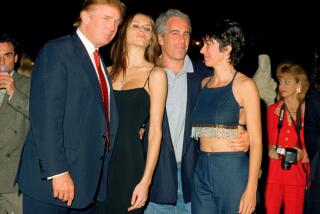J.P. Morgan Lawyer Admits Circular Enron Deal
A lawyer for J.P. Morgan Chase & Co. on Tuesday admitted the bank engineered a series of circular deals in which Enron Corp., to suit its accounting needs, sold gas to a Chase-owned entity and then bought it back as part of the same deal.
The lawyer was testifying during the second day of a trial in which J.P. Morgan Chase is suing 11 insurance firms for refusing to pay $1 billion in surety bond coverage, which the insurers issued to guarantee the deals with Enron.
Arguments presented by the two sides are expected to shine a light on the complex ways Enron worked with its financiers.
The insurers, including Chubb Corp. and Hartford Financial Services Group, have said they were misled about the true nature of the deals, saying the transactions were a disguised loan to the heavily indebted Enron and that no gas or oil ever changed hands.
Under the deals in question, J.P. Morgan, through a related entity called Mahonia, paid $1.9 billion up front to Enron in exchange for a series of oil and gas shipments to Mahonia.
Mahonia, via J.P. Morgan, was then free to sell the commodities to other companies and traders, including, sometimes, back to Enron.
In federal court in Manhattan on Tuesday, Celia Barenholtz, the attorney representing the insurance firms, used a string of e-mails, memos and flow charts in an attempt to show that in many of the deals, the gas or oil that was sold to Mahonia by Enron ended up being sold back to Enron by Chase as part of the same transaction.
The deals were signed and dated the same day, meaning that no physical gas or oil ever changed hands.
âThe structure was totally circular, yes?â Judge Jed Rakoff asked the J.P. Morgan Chase lawyer, Philip Levy.
âThe gas that was going to be sold to Mahonia would then be sold in a number of separate transactions that would ultimately be sold to Enron?â Rakoff added.
âYes, I guess that would be circular,â Levy admitted.
J.P. Morgan officials say the insurance firms knew that the deals with Enron were financing arrangements that involved the buying and selling of oil and gas. But they deny that the deals constitute a loan. The insurers signed âabsolute and unconditionalâ agreements to pay Chase should Enron default on the deliveries or payments for deliveries. But when Enron filed for bankruptcy protection in December 2001, Chase lead attorney John Callagy said, the insurance firms hurriedly met in New York and quickly came up with an excuse for not paying.
The trial is expected to last about three weeks.
More to Read
Inside the business of entertainment
The Wide Shot brings you news, analysis and insights on everything from streaming wars to production â and what it all means for the future.
You may occasionally receive promotional content from the Los Angeles Times.










